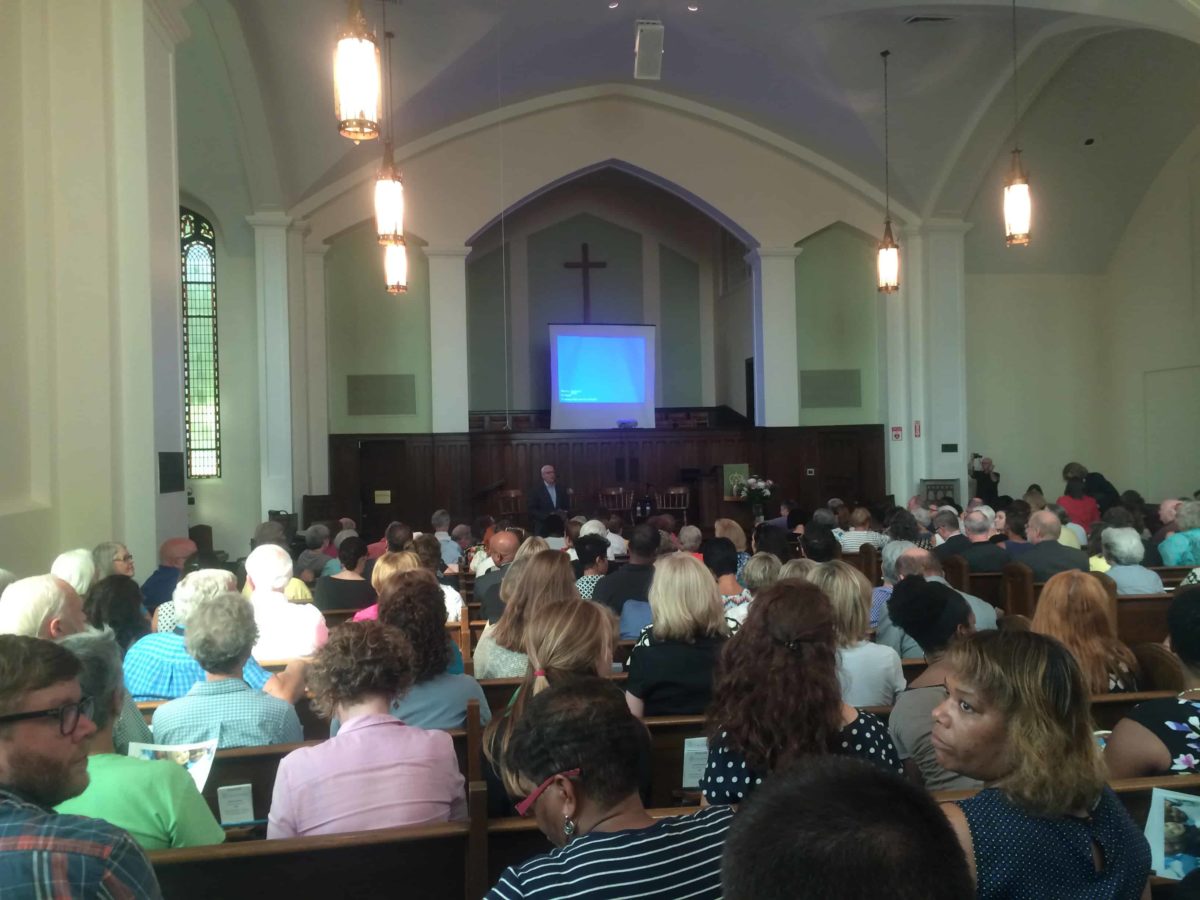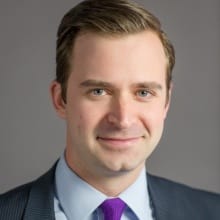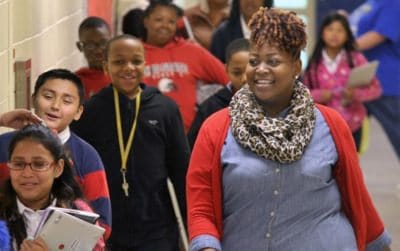

The late afternoon sunlight filtered through stained glass windows into the sanctuary of Caldwell Presbyterian Church near uptown Charlotte. Hundreds of people packed the pews. Some sat in folding metal chairs in the aisles.
But they weren’t there for a church service.
These folks were ready for a frank conversation about the intersections of race, poverty, religion, and public education. “The elephant in the room is that our schools are re-segregated by class and by race,” said Rev. John Cleghorn, the church’s senior pastor. “It’s time to call the question.”
The community meeting—which turned out to be so popular that organizers added a second session later that evening—came on the first day of classes for most Charlotte-Mecklenburg Schools students. This academic year will be the backdrop for a discussion about racial and economic isolation in CMS as the school board prepares for a student assignment review.
Amy Hawn Nelson, the UNC Charlotte researcher who works extensively on the topic, told attendees that one in three CMS schools is isolated by poverty. Half are isolated by race, and one in five is hyper-segregated by race. “Our children’s neighborhood is becoming their academic destiny,” she said. “Our imbalance is new,” Hawn Nelson said. “It happened within the last 15 years.”
Hawn Nelson said of the ten largest school districts in North Carolina, CMS is the most imbalanced by race and socioeconomic status. Three out of four charter schools in Mecklenburg County are considered segregated by race, too. “Our isolation gets worse each year,” she said.
The school board is considering an overhaul of the student assignment plan to address racial and economic isolation. Many members of the board were at this meeting, as were education advocates and other policymakers.
Cleghorn said the faith community must play a major role in helping the community grapple with this issue. “How we solve the problem will require understanding everyone’s perspectives.”
Indeed, that’s what happened the last time Charlotte addressed segregation in public schools.
“The faith community in Charlotte-Mecklenburg understands the sense that we have to care about the common good,” said Frye Gaillard, a journalist and author who covered Charlotte’s historic role in school desegregation for The Charlotte Observer. “People of faith had played a huge role in the way the story unfolded.”
Sam Fulwood III, another former Observer reporter who now writes about race and public policy for the Center for American Progress, agreed. As a CMS student in the 1970s, Fulwood was bused for desegregation.
Gaillard said the churches, synagogues, and mosques in Charlotte could provide the leadership necessary to significantly address isolation in CMS. MeckMin, an interfaith group of religious leaders, plans weekly talks in September on race, poverty, and public education.
“This isn’t a school problem,” Hawn Nelson said. “It’s a community problem.” School board chairwoman Mary McCray, sitting in the audience, nodded emphatically as Hawn Nelson spoke.
But Fulwood said the community should be prepared to feel uncomfortable because of this conversation.
“What is it about race that makes us crazy?” he asked.


